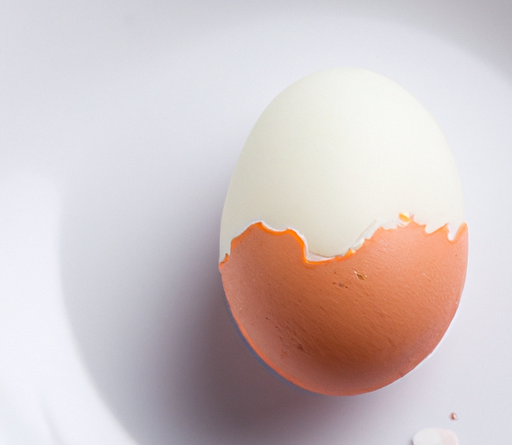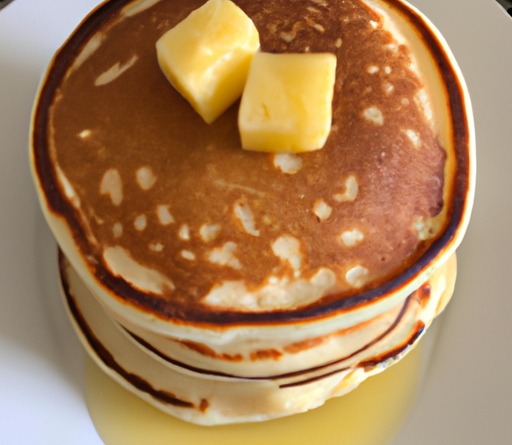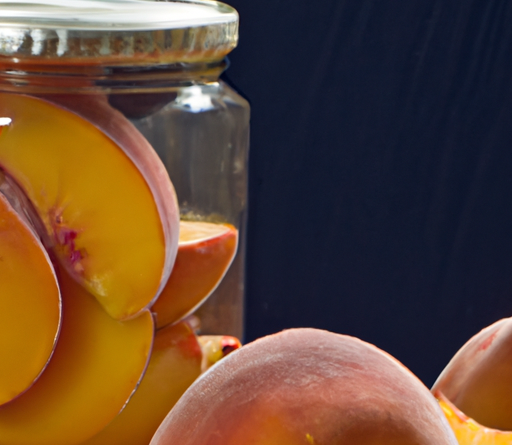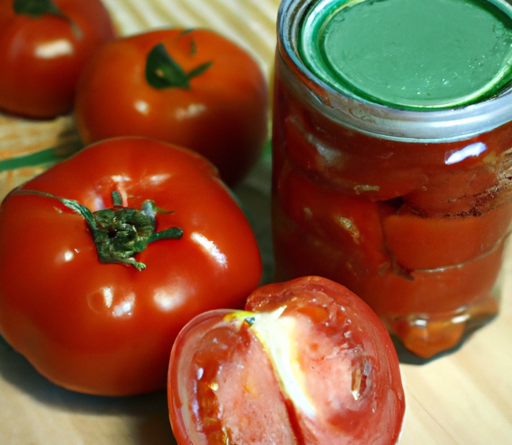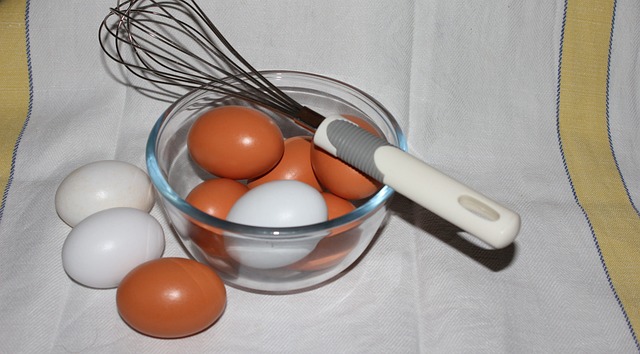
Have you ever struggled with peeling hard-boiled eggs? You know the feeling – you spend all that time boiling and cooking the eggs, only to have the shells stick stubbornly to the egg whites. It can be frustrating and time-consuming to peel them without destroying the shape of the egg. But fear not, because in this article, you’ll learn some handy tips and tricks to easily peel hard-boiled eggs.
Peeling hard-boiled eggs doesn’t have to be a hassle. There are a few simple techniques that can make the process much easier. Firstly, ensure that your eggs are fully cooked before attempting to peel them. Undercooked eggs can result in the shell sticking and breaking apart the whites. Secondly, give your eggs an ice bath immediately after boiling. Plunge them into a bowl of ice water for a few minutes to cool them down quickly. The sudden temperature change helps to shrink the membrane between the egg white and the shell, making it easier to peel. In the next sections, we will delve deeper into these techniques and explore some additional tips for effortlessly peeling hard-boiled eggs. So stay tuned and get ready to become a pro at peeling these tricky eggs!
Table of Contents
Why is peeling hard boiled eggs difficult?
The science behind the difficulty of peeling hard boiled eggs
Peeling a hard boiled egg should be a simple task, but many of us have experienced the frustration of ending up with a mangled egg instead of a perfectly peeled one. So, why is peeling hard boiled eggs so difficult? It all comes down to the science behind the egg and its shell.
When an egg is boiled, the proteins in the egg white denature and coagulate, forming a solid mass. This solid mass adheres to the inner membrane, which in turn sticks to the shell. As a result, the shell is tightly attached to the egg, making it challenging to remove.
Factors that contribute to the difficulty in peeling hard boiled eggs
While the science behind the egg and its shell is a major factor in the difficulty of peeling hard boiled eggs, there are other factors that also come into play. These factors include the freshness of the egg, the boiling technique used, the cooling process, and even how the egg is stored before boiling.
Preparation before boiling the eggs
Selecting the right eggs
To ensure easier peeling, it’s important to start with the right eggs. While it might be tempting to use freshly laid eggs, it’s actually better to use slightly older ones. As eggs age, the air cell inside the shell becomes larger, creating a small gap between the shell and the egg white. This gap makes it easier to peel the egg without damaging it.
Storing the eggs before boiling
Before boiling the eggs, it’s important to store them properly. Eggs should be refrigerated and kept at a consistent temperature. Fluctuations in temperature can cause the egg to contract and expand, making it more difficult to peel. Avoid storing eggs in the refrigerator door, as it experiences the most temperature fluctuations.
Properly cleaning the eggs
Before boiling, it’s necessary to clean the eggs to remove any dirt or bacteria that may be present on the shell. Gently wash the eggs under running water, taking care not to scrub too hard and damage the shell. This step is crucial to ensure food safety and avoid any contamination.
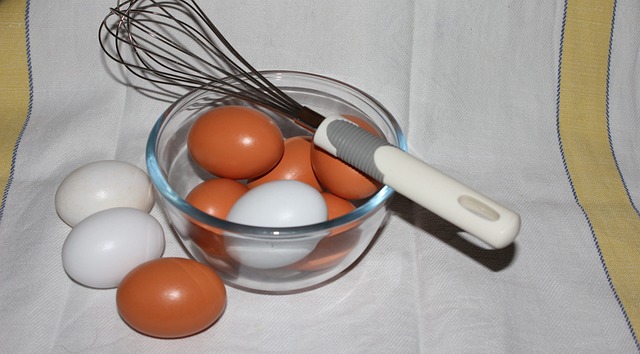
Boiling techniques for easy peeling
Different boiling methods and their impact on peelability
There are several methods for boiling eggs, and each can have a different impact on how easily the eggs can be peeled. The most common method is to place the eggs in a pot of cold water, bring it to a boil, then reduce the heat and simmer for the desired cooking time. This method often leads to easier peeling.
Another method is steaming the eggs instead of boiling them. Steaming is believed to result in eggs that are easier to peel. To steam the eggs, place them in a steamer basket over boiling water and let them cook for the desired time. This method helps to minimize the formation of sulfur compounds that can make the eggs smell and taste off.
Timing the boiling process correctly
Timing is crucial when boiling eggs for easy peeling. Overcooking can cause the egg to become dry and rubbery, making it more difficult to peel. On the other hand, undercooking can result in eggs that are not fully cooked and have a runny yolk. To achieve the perfect hard boiled egg, the water should be brought to a rolling boil, then the heat should be reduced to a gentle simmer. Follow these guidelines to achieve the desired level of doneness: 10 minutes for a medium-boiled egg, 12 minutes for a slightly soft-boiled egg, and 15 minutes for a fully hard-boiled egg.
Adding ingredients to the boiling water for better peelability
Some avid egg boilers swear by adding certain ingredients to the boiling water to make the eggs easier to peel. One popular method is to add 1-2 tablespoons of vinegar to the water. The acidic nature of the vinegar helps to weaken the bond between the egg white and the shell, making peeling easier. Another option is to add a teaspoon of baking soda to the water. This alkaline substance can also help to loosen the shell from the egg white, resulting in easier peeling.
Cooling and resting the boiled eggs
The importance of cooling the eggs before peeling
After boiling, it’s crucial to cool the eggs before attempting to peel them. Cooling the eggs halts the cooking process and helps to contract the egg and separate it from the shell. Rapid cooling is recommended to achieve the best results. One method is to transfer the boiled eggs to a bowl of ice water and let them sit for at least 5 minutes. The cold water helps to cool the eggs quickly, preventing them from continuing to cook and making them easier to peel.
Different cooling methods and their effect on peeling
There are various methods for cooling boiled eggs, and each can have a different effect on the peeling process. Some individuals prefer to let the eggs cool at room temperature before transferring them to the refrigerator. This slower cooling process can result in better peelability. Others opt to cool the eggs in the refrigerator right away to expedite the cooling process. Both methods can yield satisfactory results, so it’s up to personal preference.
The benefits of resting the boiled eggs before peeling
Allowing the boiled eggs to rest for a while before peeling can also improve the peelability. Some people find that letting the eggs sit in the refrigerator overnight helps to loosen the bond between the egg and the shell, making them easier to peel the next day. This resting period allows the egg to fully cool and settle, resulting in a more favorable peeling experience.
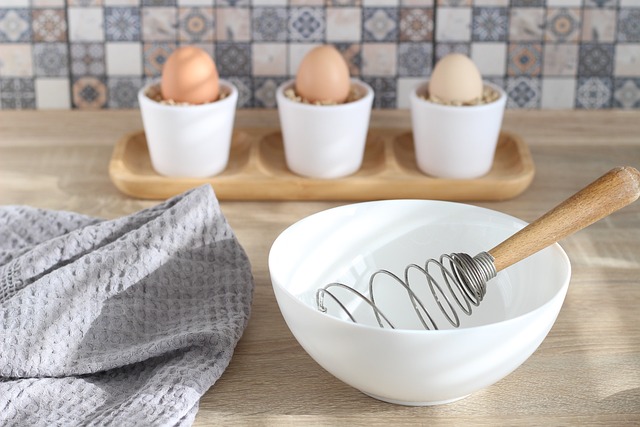
Peeling methods for hard boiled eggs
Traditional hand peeling techniques
The traditional hand peeling technique involves tapping the egg on a hard surface to crack the shell, then gently rolling it between your hands to loosen the shell. Start peeling from the wide end of the egg, where the air cell is located, as this is often the easiest spot to start. Under running water, peel the shell off, taking care to remove any small bits of shell that may remain. This method requires a bit of practice and patience, but with time, it can become a quick and easy way to peel hard boiled eggs.
Using tools or gadgets for easier peeling
If the traditional hand peeling technique doesn’t work well for you, there are various tools and gadgets available that can make the peeling process easier. Egg peelers, egg scissors, and eggshell removers are all designed to help you achieve perfectly peeled eggs with less effort. These tools often involve a slicing or cracking mechanism that breaks the shell, making it easier to remove. Some gadgets even claim to peel eggs within seconds, saving you time and frustration.
Alternative methods for effortless peeling
For those who are looking for an alternative to the traditional peeling methods, there are a few unconventional techniques worth trying. One method involves blowing air into the small end of the egg to push it out of the shell. Simply create a small hole in the top and bottom of the egg, place your mouth over the small hole, and blow gently. The egg should slide out of the shell without much effort. Another option is to use a spoon to scoop out the egg from the cracked shell. By gently sliding the spoon under the shell and around the egg, you can separate the two easily.
Tips and tricks to improve peelability
Adding vinegar or baking soda to the boiling water
As mentioned earlier, adding vinegar or baking soda to the boiling water can help to improve peelability. The acidic or alkaline properties of these ingredients can weaken the bond between the egg white and the shell, making it easier to peel. Experiment with different amounts to find the right balance that works for you.
Using older eggs for easier peeling
If you’re struggling to peel fresh eggs, using slightly older eggs can make a significant difference. As eggs age, the air cell inside the shell becomes larger, creating a gap between the shell and the egg white. This gap makes it easier to peel the egg without damaging it. So, the next time you’re planning to boil eggs, consider using ones that have been in your refrigerator for a week or so.
Gentle rolling or tapping techniques for better results
When it comes to peeling hard boiled eggs, a gentle touch is key. Instead of forcefully cracking the shell, try lightly tapping or rolling the egg on a hard surface to create small cracks. This technique helps to loosen the bond between the egg and the shell without damaging the egg. Once the shell is cracked, peeling becomes a much smoother process.

Common problems while peeling
Eggs sticking to the shell
One common problem when peeling hard boiled eggs is the egg white sticking to the shell, resulting in chunks of egg white coming off with the shell. To prevent this issue, make sure to cool the eggs properly before peeling. Rapid cooling in ice water can help to contract the egg and create separation between the egg white and the shell, reducing the chances of sticking. Additionally, gently rolling the egg on a hard surface to crack the shell rather than tapping it forcefully can also help to minimize sticking.
Chunks of egg white coming off with the shell
If you find that chunks of egg white are coming off with the shell, it may be a sign of overcooking. Overcooking can cause the proteins in the egg white to become more tightly bound, resulting in a stickier texture. To avoid this, make sure to cook the eggs for the appropriate amount of time based on your desired level of doneness. Remember to time the boiling process correctly to achieve the perfect balance between a fully cooked egg and one that is easily peeled.
Cracked or overcooked eggs
Cracked or overcooked eggs can be frustrating to deal with when peeling. To prevent cracking, handle the eggs gently when placing them in the pot and avoid dropping them. To avoid overcooking, make sure to time the boiling process correctly. Bringing the water to a rolling boil before reducing the heat to a gentle simmer can help to ensure even cooking and prevent overcooking.
Alternative uses for hard boiled eggs
Transforming hard boiled eggs into delicious recipes
Hard boiled eggs are incredibly versatile and can be transformed into a variety of delicious recipes. From classic deviled eggs to egg salad sandwiches, there are endless possibilities. You can also use hard boiled eggs to add protein and flavor to salads, grain bowls, and pasta dishes. Get creative in the kitchen and explore different recipes to make the most of your perfectly peeled hard boiled eggs.
Creative ways to incorporate hard boiled eggs in meals
Hard boiled eggs can be a nutritious addition to any meal. Slice them and serve them over avocado toast for a hearty breakfast or sandwich them between layers of lettuce, tomato, and bacon for a satisfying lunch. They can also be chopped and added to fried rice or noodle dishes for added texture and protein. Don’t limit yourself to just eating plain hard boiled eggs – experiment with different flavors and combinations to create unique and tasty meals.
Utilizing leftover hard boiled eggs
If you happen to have leftover hard boiled eggs, don’t let them go to waste. Hard boiled eggs can be stored in the refrigerator for up to one week. You can enjoy them as a quick and healthy snack, or incorporate them into other recipes. Chopped hard boiled eggs make a great addition to potato salad or macaroni salad. You can also use them to make protein-packed egg wraps or add them to a breakfast burrito.
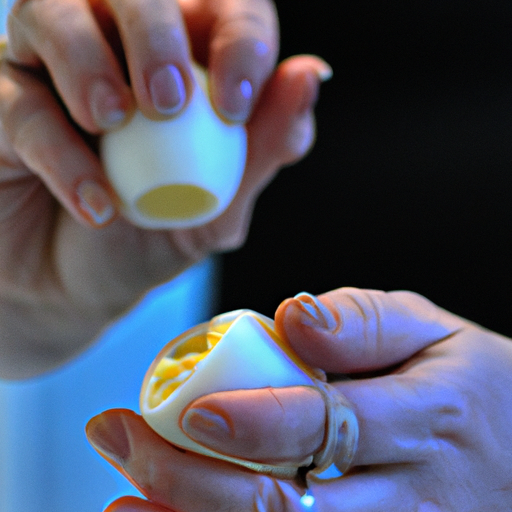
Storage and shelf life of peeled hard boiled eggs
Proper storage methods to maintain freshness
If you’ve already peeled your hard boiled eggs, it’s important to store them properly to maintain their freshness. Place the peeled eggs in an airtight container or wrap them tightly in plastic wrap. They should be stored in the refrigerator at a temperature below 40°F (4°C) to prevent bacterial growth. It’s recommended to consume peeled hard boiled eggs within three to five days to ensure their quality and safety.
Determining the shelf life of peeled hard boiled eggs
The shelf life of peeled hard boiled eggs can vary depending on various factors such as storage conditions, how they were handled, and the overall freshness of the eggs. While it’s generally recommended to consume peeled hard boiled eggs within three to five days, it’s important to use your judgement and inspect the eggs before consuming. If the eggs have an off smell, unusual color, or sliminess, it’s best to err on the side of caution and discard them.
Tips for extending the shelf life of peeled eggs
To extend the shelf life of peeled hard boiled eggs, it’s important to handle and store them properly. Always wash your hands before handling the eggs to prevent any potential contamination. Store the peeled eggs in a clean and airtight container to prevent exposure to other odors in the refrigerator. Avoid placing the eggs near strong-smelling foods, as they can absorb those odors. By following these tips, you can maximize the freshness and quality of your peeled hard boiled eggs.
Conclusion
Peeling hard boiled eggs doesn’t have to be a frustrating and messy task. By understanding the science behind the difficulty of peeling, properly preparing the eggs before boiling, implementing the right boiling techniques, and adopting effective peeling methods, you can achieve perfectly peeled hard boiled eggs with ease. Remember to experiment with different techniques and find the method that works best for you. Whether you enjoy them as a nutritious snack or incorporate them into delicious recipes, you can now confidently peel hard boiled eggs and savor their deliciousness.





